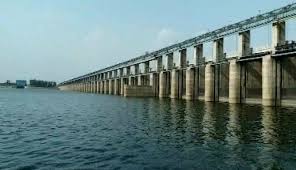Bhubaneswar: A recent study undertaken by Heinrich Boll Stiftung, India, and the Mahanadi River Waterkeeper claims that Chhattisgarh’s projects are not the only reason for the decrease in Mahanadi River’s water flow.
The report titled ‘Mahanadi – Coal Rich, Water Stressed’ released Friday said that although studies indicated that there was a decrease of around 10 per cent in Mahanadi’s flow, Chhattisgarh is not the only reason for that.
“An IIT study showed that water flow has decreased by around 10 per cent in the Mahanadi. This is mainly due to the decrease in rainfall caused by climate change. The government’s own sources found a substantial increase in the temperature in Mahanadi basin. Increasing temperatures affect the water retention capability of a river basin,” the study said.
“It therefore means that one cannot hold the dams and barrages of Chhattisgarh responsible for the decrease in water flowing to Odisha,” it added.
The report which was authored by environment crusader Ranjan Panda said the Mahanadi Tribunal alone cannot solve all the problems of the river, and that there are a number of other things beyond the judicial process which require attention from the governments of both Odisha and Chhattisgarh.
The report also justified the issues raised by the Odisha Government against Chhattisgarh.
“The Odisha Government’s apprehensions are right. Most of the barrages in Chhattisgarh have been built in the name of irrigation, but huge quantities of water have been allocated to industries. These are in fact major projects as can be seen from the gates, heights and catchment areas of the barrages,” it added.
However, the report cautioned that the proposals of both the states to build coal fired power plants can pose a great threat to the Mahanadi basin.
“If Odisha executes its plan to generate 58,000 MW of coal fired power in the coming decade, the water requirement will be 1,624 MCM per year, which means diverting water from 3,24,800 hectares of farmland. If we factor in domestic water requirement too then the plants will be using about 32.5 per cent more water than domestic requirements,” the report added.
The report said that the law which bats for a tribunal needs change, and that riparian states should conserve the river. It also asked for collecting more authentic data about the river.
